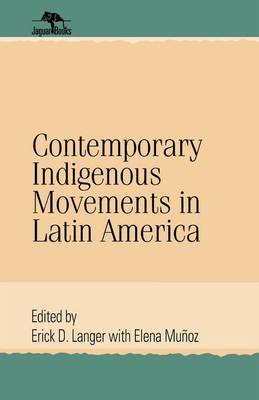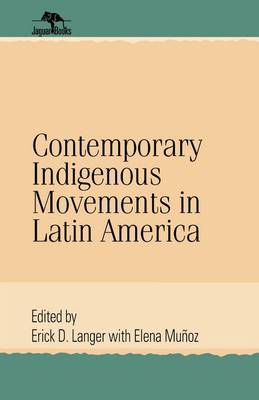
- Retrait gratuit dans votre magasin Club
- 7.000.000 titres dans notre catalogue
- Payer en toute sécurité
- Toujours un magasin près de chez vous
- Retrait gratuit dans votre magasin Club
- 7.000.0000 titres dans notre catalogue
- Payer en toute sécurité
- Toujours un magasin près de chez vous
Description
The efforts of Indians in Latin America have gained momentum and garnered increasing attention in the last decade as they claim rights to their land and demand full participation in the political process. This issue is of rising importance as ecological concerns and autochtonous movements gain a foothold in Latin America, transforming the political landscape into one in which multiethnic democracies hold sway. In some cases, these movements have led to violent outbursts that severely affected some nations, such as the 1992 and 1994 Indian uprisings in Ecuador. In most cases, however, grassroots efforts have realized success without bloodshed. An Aymara Indian, head of an indigenous-rights political party, became Vice President of Bolivia. Brazilian lands are being set aside for indigenous groups not as traditional reservations where the government attempts to 'civilize' the hunters and gatherers, but where the government serves only to keep loggers, gold miners, and other interlopers out of tribal lands. Contemporary Indigenous Movements in Latin America is a collection of essays compiled by Professor Erick D. Langer that brings together-for the first time-contributions on indigenous movements throughout Latin America from all regions. Focusing on the 1990s, Professor Langer illustrates the range and increasing significance of the Indian movements in Latin America. The volume addresses the ways in which Indians have confronted the political, social, and economic problems they face today, and shows the diversity of the movements, both in lowlands and in highlands, tribal peoples, and peasants. The book presents an analytical overview of these movements, as well as a vision of how and why they have become so important in the late twentieth century. Contemporary Indigenous Movements in Latin America is important for those interested in Latin American studies, including Latin American civilization, Latin American anthropology, contemporary issues in Latin America, and ethnic studies.
Spécifications
Parties prenantes
- Auteur(s) :
- Editeur:
Contenu
- Nombre de pages :
- 220
- Langue:
- Anglais
- Collection :
Caractéristiques
- EAN:
- 9780842026796
- Date de parution :
- 01-03-03
- Format:
- Livre relié
- Format numérique:
- Genaaid
- Dimensions :
- 156 mm x 240 mm
- Poids :
- 526 g

Les avis
Nous publions uniquement les avis qui respectent les conditions requises. Consultez nos conditions pour les avis.






